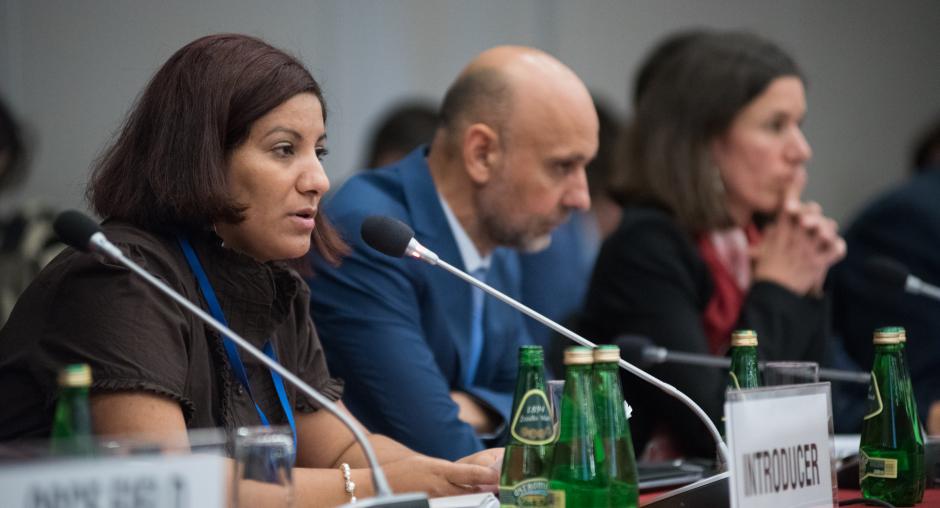Promoting public, political participation of Roma and Sinti fundamental to effective policy making, say OSCE/ODIHR conference participants

OSCE participating States should step up their efforts to ensure the full participation of Roma and Sinti in their societies, and particularly their inclusion in political life, said participants in the working session focusing on Roma and Sinti issues held on 28 September 2016 as part of the annual Human Dimension Implementation Meeting (HDIM) in Warsaw.
The event brought together representatives of civil society and state authorities from across the OSCE region to discuss the access of Roma and Sinti to elected and appointed positions within state institutions, progress in the implementation of the 2003 Action Plan on Improving the Situation of Roma and Sinti within the OSCE Area, and related obstacles.
In particular, participants stressed the impact of “anti-Gypsyism” on policy-making processes directly affecting representatives of these groups.
“Anti-Gypsyism continues to be largely unpunished and deeply ingrained in the societies of a substantial number of OSCE participating States,” Valeriu Nicolae, Special Representative of the Secretary General of the Council of Europe for Roma Issues, said in his opening speech. “As long as racism towards Roma remains acceptable and goes unpunished, our participation in our societies will always be limited.”
“If I want to change something, it cannot be changed from below, because decisions are made at the highest level and then delegated to municipalities,” Lucie Fuková, a Roma activist and member of the Government Council for Roma Minority Affairs of the Czech Republic, said in her introductory remarks. “It is clear that Roma should go into politics if they really want to change something.”
Participants also stressed the important role of women and youth in promoting social and political inclusion of Roma and Sinti. The participation of women is essential, said Fuková, “as they are often engaged with issues affecting the community as a whole and, thus, have the potential to be real agents of change.”
In the run-up to the event, OSCE/ODIHR organized a preparatory training event on participation and advocacy for civil society representatives from Roma and Sinti communities.
